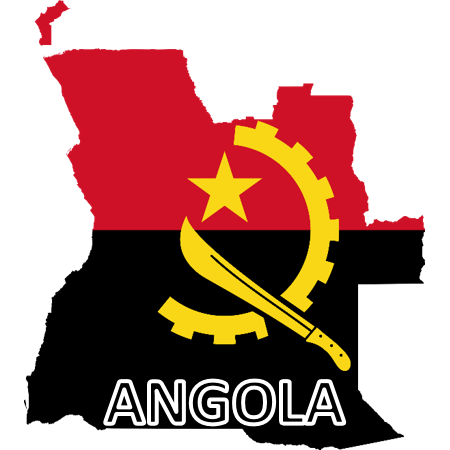 More people have been reported killed in the 7 months following the UN supervised general elections in Angola than in the 16 year old civil war that it was supposed to end. As towns are pounded into rubble by artillery, tank, mortar and rocket bombardments, as lines of refugees flee embattled towns, and as the body count of the dead continues to mount, accusations and attributing of blame fly back and forth. However, despite the prevailing chaos, some seem to have had no problem laying all the blame on the anti-communist UNITA movement and it’s veteran resistance leader Dr Jonas Savimbi. But research by members of Frontline Fellowship have found the reality not nearly that simple. The ruling MPLA government of Angola was installed in power by a Cuban army of occupation in 1 975. The MPLA signed a treaty with the Soviet Union in 1976 and proclaimed itself a Marxist-Leninist party in 1977. During the 16 years of Cuban military occupation and MPLA dictatorship many churches were destroyed, over 350 000 people were killed, 80 000 were crippled or mutilated, 500 000 refugees fled to Zaire, Zambia and Namibia, 800 000 internal refugees were displaced and 60 000 orphaned. War damage exceeded $25 Billion. 2 500 Factories were closed down and the national debt rose to over $8 Billion.
Following the successive failures of joint Soviet, Cuban and MPLA military offensives against UNITA held “Free Angola”, the MPLA declared itself for multi-party democracy and agreed to a cease-fire. Those sceptical of this apparent conversion from communism were soon disturbed by numerous irregularities in the run up to the first general elections ever scheduled iii Angola on 29-30 September 1992.
The New York based American Foundation for Resistance International reported in their Democracy Bulletin that the Angolan elections were “a text book example of Marxist - inspired suppression of the democratic process by the ruling MPLA, planned in advance and executed with a view to perpetuating communist rule over Angola.” The Heritage Foundation, Back grounder (11/16/92) reported that: “The MPLA is responsible for most of Luanda ‘s carnage. It reportedly distributed thousands of weapons to its cadres, leading to the massacre of thousands of unarmed civilians suspected of being UN/TA supporters. Moreover, the MPLA apparently sought to decapitate UN/TA by killing its vice president, Jeremias Chitunda and other top UN/TA leaders.” UN sponsored negotiations for a cease- fire turned out to be an ambush. The Vice President of UNITA, Jeremias Chitunda and other UNITA leaders were lured to Luanda under UN assurances of safe passage only to be shot in the back of the head by MPLA security officials. These assassinations were followed by co-ordinated MPLA ground and aerial attacks on UNITA installations and house to house searches for sympathizers and supporters of UNITA. The Free Angola Information Service announced that thousands of civilians were massacred in this pogrom. In the presidential vote, MPLA candidate Dos Santos wor. 49.6% of the vote, Savimbi obtained 40.1%. The UN noted the “irregularities” in the electorial process but nonetheless certified the Angolan elections “general/y free and fair”. The Democracy Bulletin described this UN verification as “an act of whitewash pro bafi/y produced under pressure.” A six man observer team from Germany noted the monopoly of the media by the MPLA and rampant pre-election bribery and corruption. Observers from the Conservative Caucus declared the election process fraudulent and documented widespread intimidation. Despite initial MPLA successes, most observers agree that UNITA now controls about 70% of the countryside and a large number of provincial capitals and smaller towns. This highlights another inconsistency in most reports. How does UNITA manage to control most of Angola? Considering that UNITA no longer receives any aid from its previous sponsors, the USA and South Africa, and considering the vast amount ofstockpiled weaponry supplied by the Soviet Union to the MPLA from 1975-1991, where is UNITA’s support base? It is hard to avoid the conclusion that UNITA continues to survive because it enjoys widespread popular support in Angola. The prevalent fraud and intimidation in the Angolan elections, the ineffectiveness of the UN observers and the resultant vicious civil war are being viewed with concern by South Africans as we prepare for similar proceedings here. Peter Hammond
0 Comments
Leave a Reply. |
More Reports
All
Archives
December 2017
|
"And Jesus came and spoke to them, saying, “All authority has been given to Me in heaven and on earth.
Go therefore and make disciples of all the nations, baptizing them in the name of the Father and of the Son and of the Holy Spirit,
teaching them to observe all things that I have commanded you; and lo, I am with you always, even to the end of the age.” Amen.” Matthew 28: 18-20
Go therefore and make disciples of all the nations, baptizing them in the name of the Father and of the Son and of the Holy Spirit,
teaching them to observe all things that I have commanded you; and lo, I am with you always, even to the end of the age.” Amen.” Matthew 28: 18-20
|
P.O.Box 74 Newlands 7725
Cape Town South Africa |
|

 RSS Feed
RSS Feed
